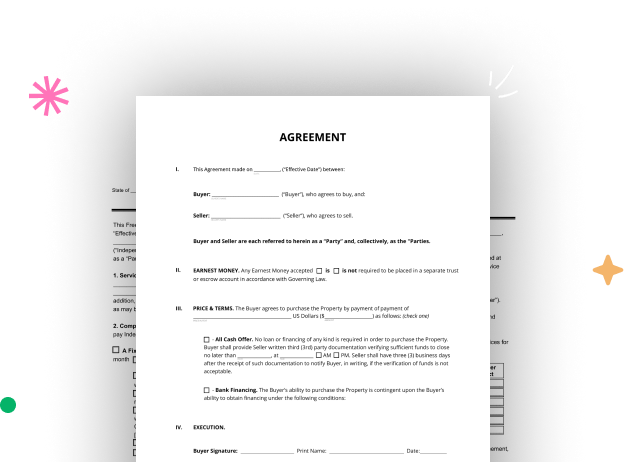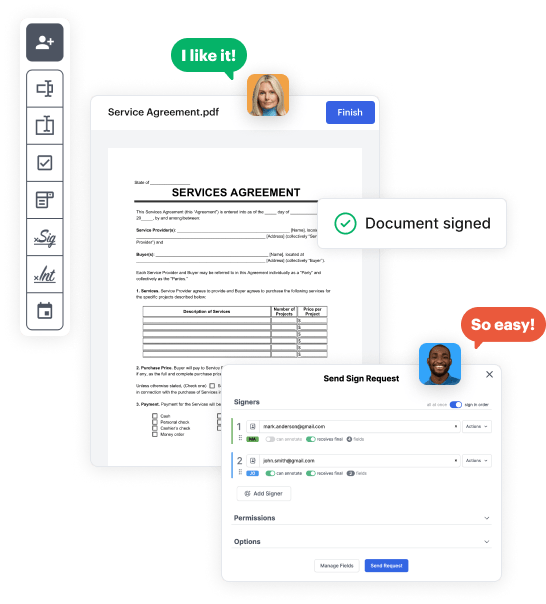

Go to the DocHub website and register for the free trial. This provides access to every feature you’ll need to build your Legal Production Request Form with no upfront cost.
Sign in to your DocHub account and proceed to the dashboard.
Hit New Document in your dashboard, and choose Create Blank Document to create your Legal Production Request Form from the ground up.
Add various elements such as text boxes, radio buttons, icons, signatures, etc. Organize these elements to suit the layout of your document and designate them to recipients if needed.
Rearrange your document quickly by adding, moving, removing, or merging pages with just a few clicks.
Transform your newly crafted form into a template if you need to send multiple copies of the same document multiple times.
Send the form via email, share a public link, or even post it online if you want to collect responses from more recipients.